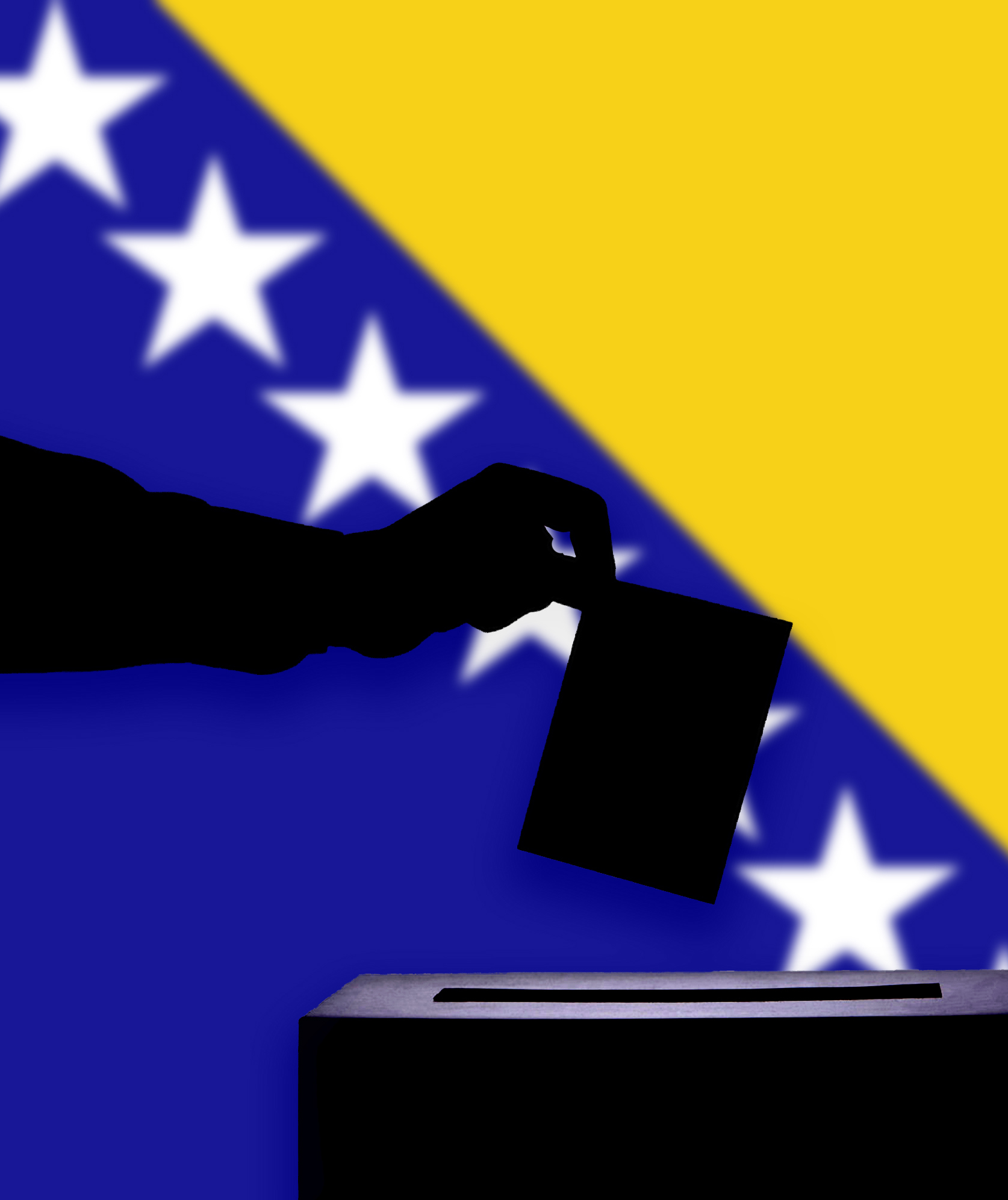
General elections were held in Bosnia and Herzegovina (BiH) on 7 October 2018. Per the decision of the Central Election Commission of Bosnia and Herzegovina elections were called for the Presidency of BiH; House of Representatives of the Parliamentary Assembly of BiH; House of Representatives of the Parliament of the Federation of Bosnia and Herzegovina; National Assembly of Republica Sırpska; President and Vice President of Republica Sırpska and Cantonal Assembly in the Federation of Bosnia and Herzegovina.[1]
It should be noted that according to the General Framework Agreement for Peace in Bosnia and Herzegovina signed on 14 December 1995[2], BiH is made up of the two Entities: the Federation of Bosnia and Herzegovina (mainly Bosniak and Croat) and Republika Srpska.
BiH constitution is in fact forms the Annex 4 of the General Framework Agreement. It describes the composition of the state as “Bosnia and Herzegovina shall consist of the two Entities, the Federation of Bosnia and Herzegovina and the Republika Srpska (hereinafter ‘the Entities’)”.[3] Regarding the Presidency, the Constitution states that “The Presidency of Bosnia and Herzegovina shall consist of three Members: one Bosniac and one Croat, each directly elected from the territory of the Federation, and one Serb directly elected from the territory of the Republika Srpska.”[4] According to the Constitution, citizens from the Entity of Republika Srpska (RS) can only vote for the Presidency candidate from among the Serb people, while the citizens living in the Bosniak-Croat dominated Federation of Bosnia and Herzegovina (FBiH) can vote for candidates from among the Bosniak and Croat peoples.
It was reported in the press that the Central Election Commission of Bosnia and Herzegovina, after counting 80 percent of votes for BiH tripartite Presidency, indicated preliminarily new Presidency members as Sefik Dzaferovic from Bosniac SDA party (Party of Democratic Action founded by Alija İzzetbegoviç) with 37.30 percent of votes; Zeljko Komsic as Croat member with 51.14 percent of votes and Milorad Dodik as Serb member with 54.06 percent of votes.[5]
Zeljko Komsic served as the Croat member of the Presidency of BiH from 2006 until 2014. He was previously one of the leading figures of the Social Democratic Party. Then he left the party in 2012 and established the Democratic Front party.
Milorad Dodik is from the Serb political party of Alliance of Independent Social Democrats. He is the president of Republika Srpska since 2010. He previously had served as the Prime Minister of Republika Srpska between 1998 and 2001, and between 2006 and 2010.
According to the same press reports, apart from the above mentioned leading three candidates from the Bosniak, Croat and Serb peoples, the other major candidates from the Bosniak people won the following results: Denis Becirovic, Social Democratic Party (SDP) won 33.37 percent of votes, Fahrudin Radoncic, Party for the Better Future (SBB) won 12.89 percent of votes. The other leading Croat candidate Dragan Covic (currently Croat member of Presidency) from Croat Democratic Union (HDZ BiH) won 37.31 percent of votes. Milorad Dodik’s opponent Mladen Ivanic (currently Serb member of the Presidency) from Victory Alliance won 42.79 percent of votes.
Milorad Dodik is known as a hard-liner Bosnian Serb leader. He has repeatedly questioned the existence of Bosnia and Herzegovina in the past and made a number of comments against the sovereignty and territorial integrity of Bosnia and Herzegovina. After the last elections the international press reported the results with the titles like “Bosnia-Herzegovina election: Pro-Russian Serb leader claims victory” (DW); “Serb Nationalist Claims Victory in Bosnia in Early Vote Count” (The New York Times); “Will Milorad Dodik break up Bosnia?” (Al Jazeera News); “Bosnia and Herzegovina still divided 15 years after war” (CNN); “Milorad Dodik: Serb nationalist wins Bosnia presidency seat” (BBC).
The New York Times reported that “A pro-Russia Serbian nationalist claimed victory in the race for the Serbian seat on Bosnia’s three-member presidency… Milorad Dodik, a Bosnian Serb strongman and a close ally of Russia’s president Vladimir V. Putin, could exacerbate ethnic rivalries in the Balkan nation and stall the country’s bid for membership in the European Union”. [6]
He reportedly said that “I don’t care who the other two representatives in the presidency are. I am going there, to this presidency, to work above all and only for the interests of Serbs.”[7] It is also reported that “at the weekend, (Dodik) told Russian newspaper Izvestia on Tuesday that one of his first moves will be to launch an initiative to recognize Crimea as part of Russia”. According to the same report he also said that “Crimea historically belongs to Russia and that he wants to visit the annexed peninsula as soon as possible as a new member of Bosnia's presidency.”[8]
He also reportedly said “on his first day in office, he will write to US President Donald Trump to demand the abolition of the Office of the High Representative - a part of the Dayton Peace Accords intended to protect the country's constitution.”[9] It should be mentioned in this juncture that Turkey is a member of the Steering Board of the Peace Implementation Council which is charged with implementing the Dayton Peace Agreement for Bosnia and Herzegovina (The Steering Board members are Canada, France, Germany, Italy, Japan, Russia, United Kingdom, United States, Presidency of the European Union, European Commission, and Organization of the Islamic Conference, represented by Turkey).
We, as the Center for Eurasian Studies (AVİM), in our analysis concerning the European Union Institute for Security Studies (EUISS) the Chaillot Paper No.147 titled “Balkan futures- Three Scenarios for 2025” drew the attention to the description of “Disruptive external actors” and expressed our deep disappointment with naming Turkey as a “disruptive external actor” along with Russia, China and the Gulf States in the Balkans.[10] We described this reference as an extremely unfair characterization and stressed that “EUISS owes a correction for naming Turkey as one of the “Disruptive external actors’ of the Balkans”.
As it is rightly mentioned in the New York Times report, “Milorad Dodik…could exacerbate ethnic rivalries in the Balkan nation and stall the country’s bid for membership in the European Union”. It should be underlined that without Turkey’s support as an ally and partner, rough challenges are awaiting the EU in the Balkans. EU and Turkey are not rivals in the Balkans. It stands to reason that EU and Turkey should endeavor together to keep the Balkans in tranquility.
* Photo: The Vienna Institute for International Economic Studies
[1] Novac Bozickovic et al., “HANDBOOK FOR OBSERVING ELECTIONS IN BiH 2018 GENERAL ELECTIONS” (Sarajevo: Central Election Commission Bosnia and Herzegovina, 2018), http://www.izbori.ba/Documents/Opci_izbori_2018/Os/Prirucnik_za_posmatranje_izbora-ENG.pdf.
[2] Signed in Paris.
[3] “Annex 4,” Office of The High Representative, n.d., pts. I–3, http://www.ohr.int/?page_id=63255.
[4] “Annex 4,” sec. 5.
[5] N1 Sarajevo, “Preliminary Election Results for Bosnian Parliament,” N1, August 10, 2018, English Edition edition.
[6] Barbara Surk, “Serb Nationalist Claims Victory in Bosnia in Early Vote Count,” The New York Times, October 7, 2018, https://www.nytimes.com/2018/10/07/world/europe/bosnia-elections-dodik.html.
[7] Mladen Lakic, “Dodik Wins Presidency Seat in Bosnia Election,” Balkan Insight, October 7, 2018, http://www.balkaninsight.com/en/article/first-unconfirmed-results-of-bosnia-s-elections-10-07-2018.
[8] Mladen Lakic, “Bosnia Should Recognise Crimea as Russian, Says Dodik,” Balkan Insight, October 9, 2018, http://www.balkaninsight.com/en/article/crimes-is-part-of-russia-dodik-says-10-09-2018.
[9] David Chater, “Will Milorad Dodik Break up Bosnia?,” Al Jazeera, October 9, 2018, sec. News, https://www.aljazeera.com/news/2018/10/milorad-dodik-break-bosnia-181009080339970.html.
[10] Teoman Ertuğrul Tulun, “Chaillot Paper On Balkans Future: A Case Of Ill-Informed Leading The Ill-Informed,” February 10, 2018, sec. Analysis, No:2018 / 28, https://avim.org.tr/en/Analiz/CHAILLOT-PAPER-ON-BALKANS-FUTURE-A-CASE-OF-ILL-INFORMED-LEADING-THE-ILL-INFORMED.
© 2009-2025 Center for Eurasian Studies (AVİM) All Rights Reserved
No comments yet.
-
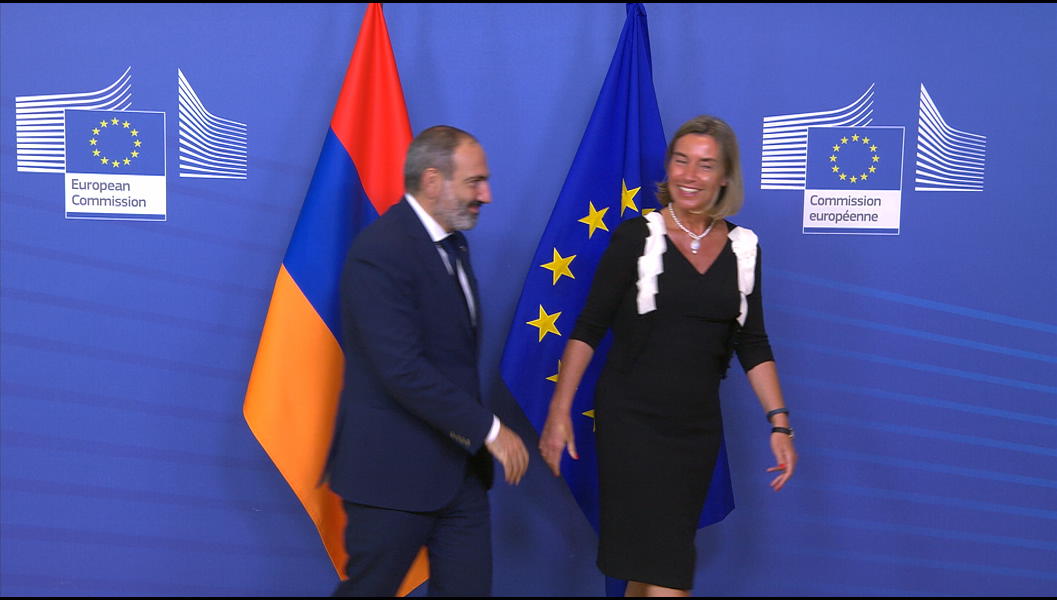 ARMENIA, EU AND A NEW FRAMEWORK FOR ECONOMIC ASSISTANCE
ARMENIA, EU AND A NEW FRAMEWORK FOR ECONOMIC ASSISTANCE
Teoman Ertuğrul TULUN 27.07.2018 -
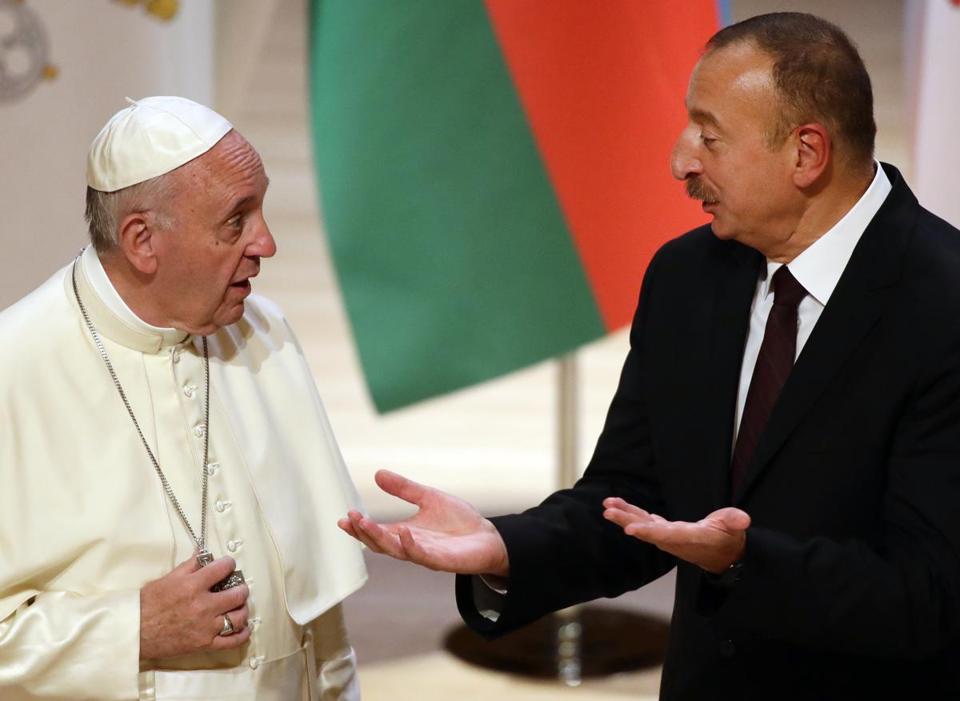 POPE FRANCIS IN AZERBAIJAN
POPE FRANCIS IN AZERBAIJAN
Teoman Ertuğrul TULUN 14.10.2016 -
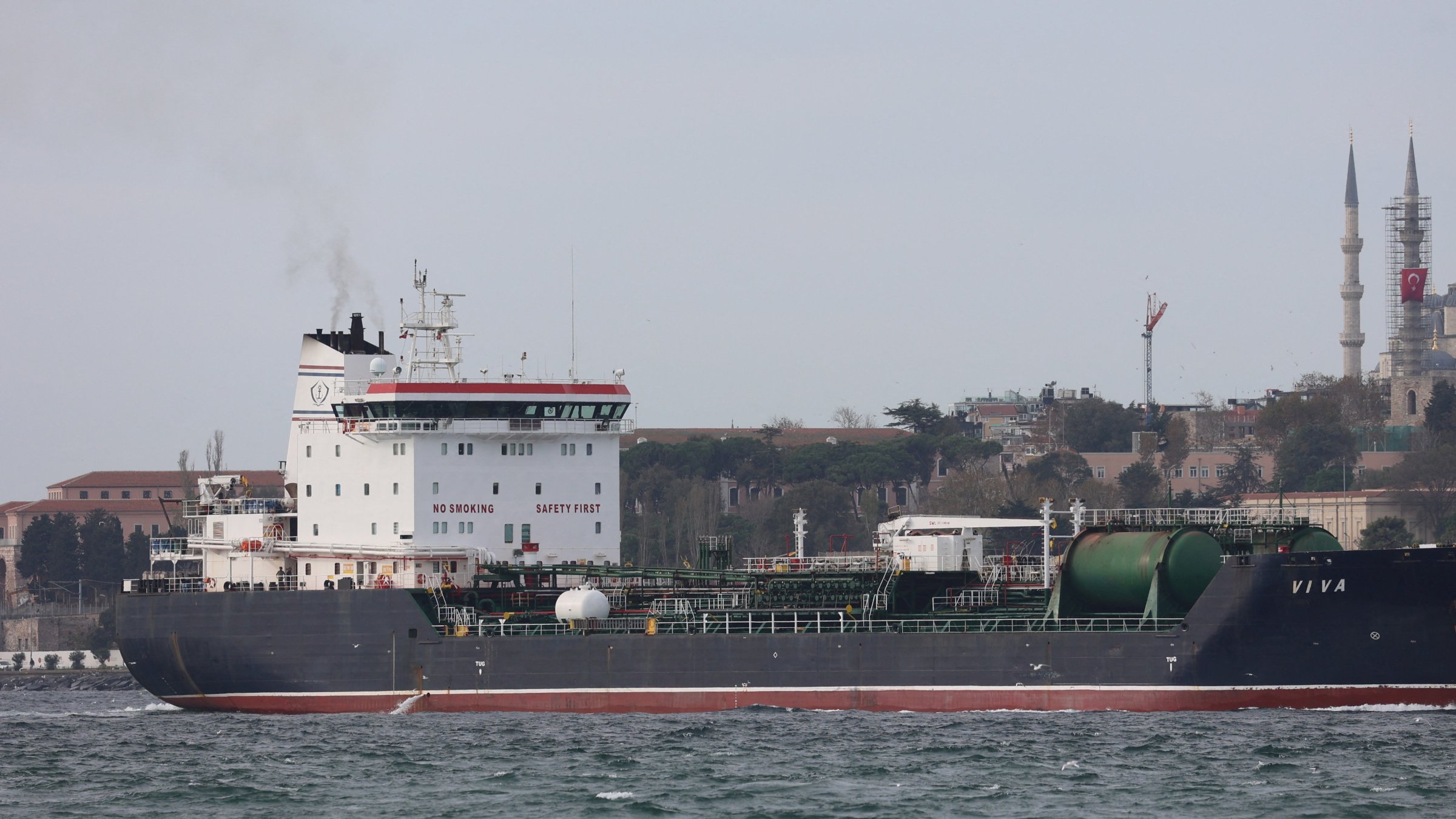 GUARDIANSHIP UNDER PRESSURE: DRONE ESCALATION, RUSSIAN MILITARIZATION, AND TÜRKIYE’S LEGAL ORDER IN THE BLACK SEA
GUARDIANSHIP UNDER PRESSURE: DRONE ESCALATION, RUSSIAN MILITARIZATION, AND TÜRKIYE’S LEGAL ORDER IN THE BLACK SEA
Teoman Ertuğrul TULUN 05.01.2026 -
 AVİM ON THE ELEVENTH ANNIVERSARY OF ITS FOUNDING
AVİM ON THE ELEVENTH ANNIVERSARY OF ITS FOUNDING
Teoman Ertuğrul TULUN 05.02.2020 -
 POPE’S VISIT TO AZERBAIJAN: A TEST FOR UNIVERSAL FRATERNITY
POPE’S VISIT TO AZERBAIJAN: A TEST FOR UNIVERSAL FRATERNITY
Teoman Ertuğrul TULUN 09.09.2016
-
ARMENIA HAS OPTED TO JOIN THE EURASIAN ECONOMIC UNION
Alev KILIÇ 06.09.2013 -
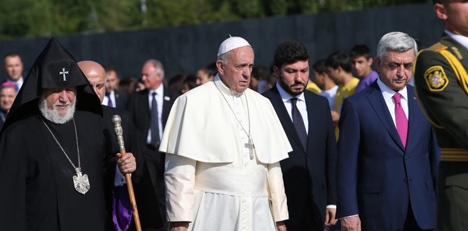 POPE FRANCIS’ PUSH FOR ECUMENISM
POPE FRANCIS’ PUSH FOR ECUMENISM
Mehmet Oğuzhan TULUN 28.06.2016 -
 THE OPENING OF HAGIA SOPHIA FOR WORSHIP: REACTIONS FROM THE WORLD COUNCIL OF CHURCES AND THE ARMENIAN CATHOLICOSATE OF CILICIA (ANTELIAS)
THE OPENING OF HAGIA SOPHIA FOR WORSHIP: REACTIONS FROM THE WORLD COUNCIL OF CHURCES AND THE ARMENIAN CATHOLICOSATE OF CILICIA (ANTELIAS)
AVİM 24.07.2020 -
 THE ORGANIZATION OF TURKIC STATES AND THE CLAIMS OF TURANISM AND PANTURKISM
THE ORGANIZATION OF TURKIC STATES AND THE CLAIMS OF TURANISM AND PANTURKISM
Selenay Erva YALÇIN 19.12.2024 -
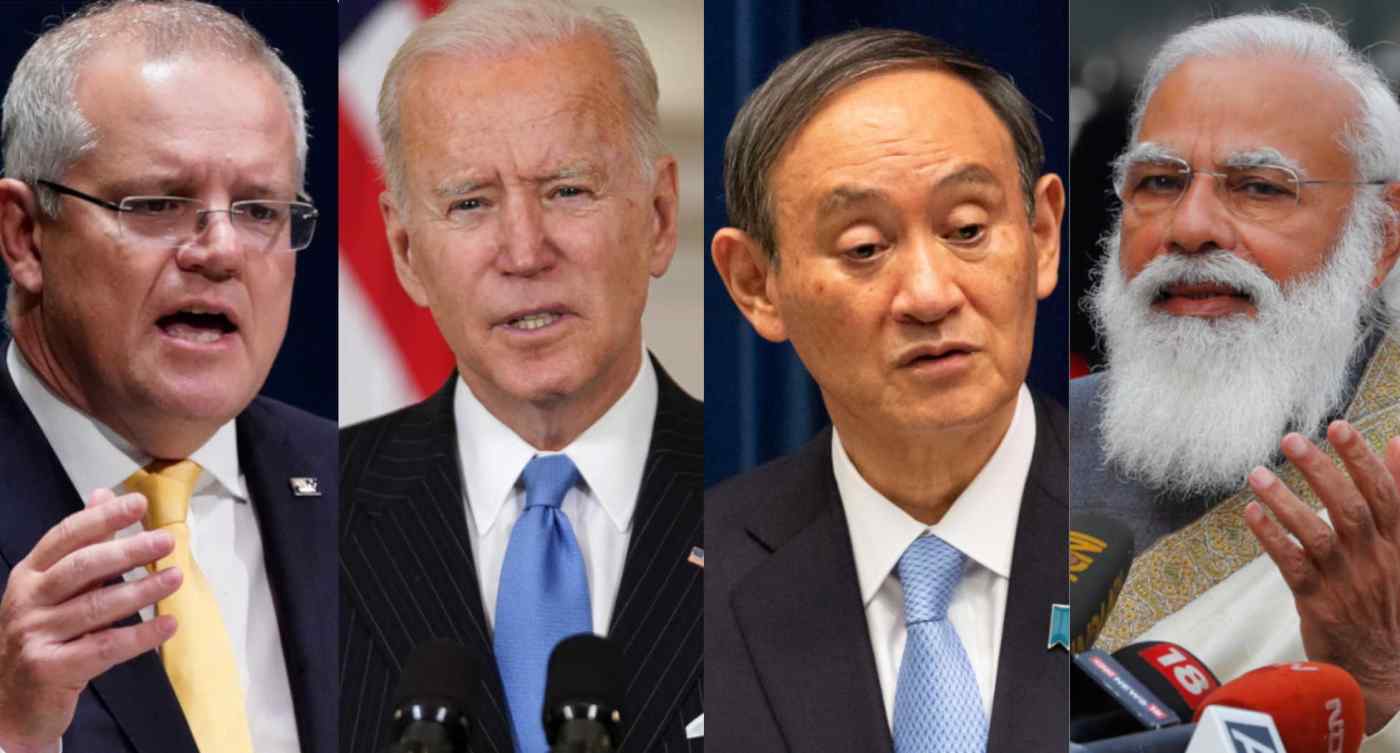 THE QUAD: TURNING POINT FOR THE INDO-PACIFIC
THE QUAD: TURNING POINT FOR THE INDO-PACIFIC
Şevval Beste GÖKÇELİK 01.04.2021
-
25.01.2016
THE ARMENIAN QUESTION - BASIC KNOWLEDGE AND DOCUMENTATION -
12.06.2024
THE TRUTH WILL OUT -
27.03.2023
RADİKAL ERMENİ UNSURLARCA GERÇEKLEŞTİRİLEN MEZALİMLER VE VANDALİZM -
17.03.2023
PATRIOTISM PERVERTED -
23.02.2023
MEN ARE LIKE THAT -
03.02.2023
BAKÜ-TİFLİS-CEYHAN BORU HATTININ YAŞANAN TARİHİ -
16.12.2022
INTERNATIONAL SCHOLARS ON THE EVENTS OF 1915 -
07.12.2022
FAKE PHOTOS AND THE ARMENIAN PROPAGANDA -
07.12.2022
ERMENİ PROPAGANDASI VE SAHTE RESİMLER -
01.01.2022
A Letter From Japan - Strategically Mum: The Silence of the Armenians -
01.01.2022
Japonya'dan Bir Mektup - Stratejik Suskunluk: Ermenilerin Sessizliği -
03.06.2020
Anastas Mikoyan: Confessions of an Armenian Bolshevik -
08.04.2020
Sovyet Sonrası Ukrayna’da Devlet, Toplum ve Siyaset - Değişen Dinamikler, Dönüşen Kimlikler -
12.06.2018
Ermeni Sorunuyla İlgili İngiliz Belgeleri (1912-1923) - British Documents on Armenian Question (1912-1923) -
02.12.2016
Turkish-Russian Academics: A Historical Study on the Caucasus -
01.07.2016
Gürcistan'daki Müslüman Topluluklar: Azınlık Hakları, Kimlik, Siyaset -
10.03.2016
Armenian Diaspora: Diaspora, State and the Imagination of the Republic of Armenia -
24.01.2016
ERMENİ SORUNU - TEMEL BİLGİ VE BELGELER (2. BASKI)
-
AVİM Conference Hall 24.01.2023
CONFERENCE TITLED “HUNGARY’S PERSPECTIVES ON THE TURKIC WORLD"









